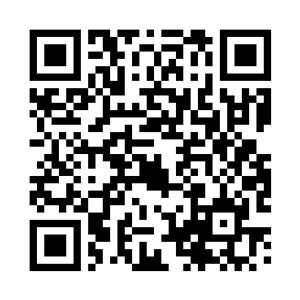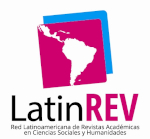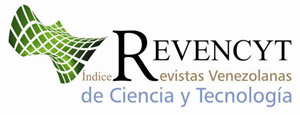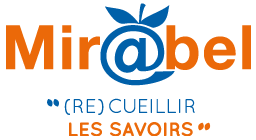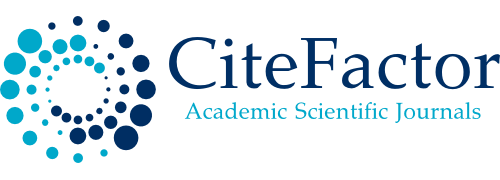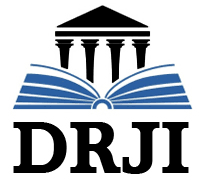Quehacer hermenéutico: reflexiones sustantivas para el conocer en las ciencias sociales
Palabras clave:
hermenéutica, quehacer hermenéutico, ciencias socialesResumen
El presente estudio tiene como propósito generar comprensiones holísticas sobre el quehacer hermenéutico para el conocer en las ciencias sociales. Deriva de un proceso heurístico centrado en la secuencia de pensar, interpretar y comprender los significantes y significados lingüísticos emergentes en los contextos históricos desde las vivencias del ser humano, en aras de ampliar horizontes de la razón y recrear sentidos auténticos en el mundo de la vida. Las reflexiones sustantivas generadas se construyen en la recursividad interpretativa, signada por el ciclo hermenéutico propuesto por Dilthey (1990) reflexionar, comprender el todo, sus partes y viceversa con miras a edificar conocimientos socialmente pertinentes. Finalmente, comprendimos que la hermenéutica es un quehacer humano para el conocer, nos permite estudiar exhaustivamente el mundo cognoscente con los otros para generar contribuciones científicas como sujetos epistémicos. Al mismo tiempo, nos permite desplegar un accionar heurístico creativo para superar obstáculos epistemológicos en los sistemas de pensamiento con los cuales las comunidades científicas operacionalizan el conocer para edificar un saber teórico y práctico con el mundo cotidiano en pro hacerlos asequible para toda la sociedad.
Descargas
Referencias
Alvarado Mendoza, N. J. (2023). La Hermenéutica en el Quehacer Científico de las Ciencias Sociales. En Prospectiva, 4(2), 5–19. Recuperado a partir de https://revista.uny.edu.ve/ojs/index.php/en-prospectiva/article/view/318
Alvarado Mendoza, N. J., & Villarreal Torres, M. J. (2023). Praxis educativa. Aproximaciones epistemológicas desde el quehacer docente. Revista Honoris Causa, 15(1), 126–144. Recuperado a partir de https://revista.uny.edu.ve/ojs/index.php/honoris-causa/article/view/286
Bauman, Z. (2000). Modernidad Líquida. Buenos Aires: Fondo de Cultura Económica de Argentina.
Conill, J. (2008). Hermenéutica Crítica desde la Facticidad de la Experiencia. Convivium 21(1), 31-40.
Dilthey, W. (1976). The rise of hermeneutics. 1900. En: Connerton, P., Critical Sociology. Nueva York: Penguin.
Dilthey, W. (2000). Dos escritos sobre hermenéutica: el surgimiento de la hermenéutica y los esbozos para una crítica de la razón histórica. (Trad. Gómez Ramos). Madrid: Istmo
Gadamer, H-G. (1981). La idea de la lógica de Hegel en la dialéctica de Hegel. Madrid: Cátedra.
Gadamer, H-G. (1986). Verdad y método. Madrid: Sígueme
Hegel, G. (1991). Fenomenología del espíritu. Buenos Aires: Rescate.
Heidegger, M. (1929). Tiempo e Historia. Edición y Traducción de Jesús Adrián Escudero. Madrid: Trotta.
Heidegger, M. (1988). Identidad y diferencia. Barcelona: Anthropos.
Martínez Miguélez, M. (2013). Epistemología y Metodología Cualitativa en las Ciencias Sociales. México. Trillas.
Moreno, A. (1999). Discurso y Método Dialéctico en la Ciencia Social. Barquisimeto: FUNDAUPEL-IPB.
Muñoz, M. (2021). La actualidad del método hermenéutico de Friedrich Schleiermacher. Escritos, 29 (62), 56-72. https://doi.org/10.18566/escr.v29n62.a04
Ricoeur, P. (1987). Tiempo y narración. Cristiandad.
Schleiermacher, F. (1959). Hermeneutik. Nach den Handschriften neu herausgegeben und eingeleitet von Heinz Kimmerle. Abhandlungen der Heidelberger Akademie der Wissenschaften, Heidelberg.
Schleiermacher, F. (1977a). Hermeneutik und Kritik. Mit einem Anhang sprachphilosophischer Texte Schleiermachers. Herausgegeben und eingeleitet von Manfred Frank, Suhrkamp. Frankfurt am Main.
Ugas Fermín, G. (2013). Del Acto de Conocer al Discurso que lo Narra. Una Problemática Epistemológica. Lito Formas: San Cristóbal.
Van Manen, M. (2003). Investigación Educativa y Experiencia vivida. Ciencia humana para una pedagogía de la acción y de la sensibilidad. Barcelona: Idea Boo.
Villarreal, M. (2021). Conocimiento Pedagógico Emergente de la Praxis Educativa en la Universidad Pedagógica Experimental Libertador. Tesis Doctoral Publicada. Universidad Centroccidental Lisandro Alvarado, Universidad Pedagógica Experimental Libertador, Instituto Pedagógico Luís Beltrán Prieto Figueroa, Universidad Nacional Experimental Politécnica, Antonio José de Sucre, Barquisimeto.
Publicado
Cómo citar
Número
Sección
Licencia
Derechos de autor 2024 Yarinés Del Carmen Perdomo de Yépez, Nichol José Alvarado Mendoza

Esta obra está bajo una licencia internacional Creative Commons Atribución-NoComercial-CompartirIgual 4.0.





